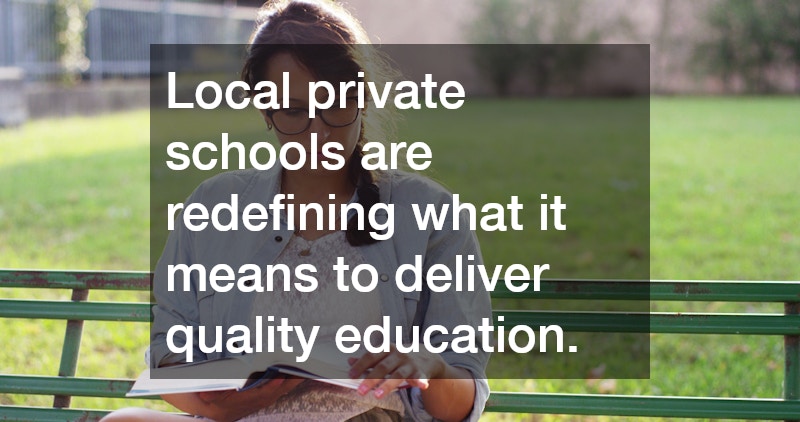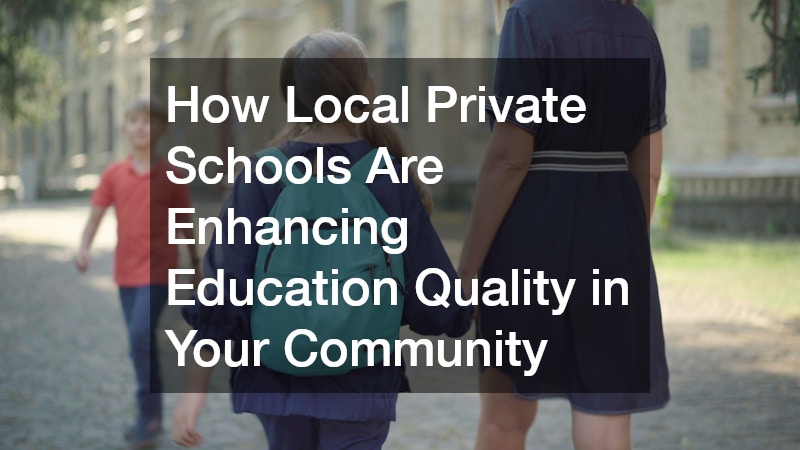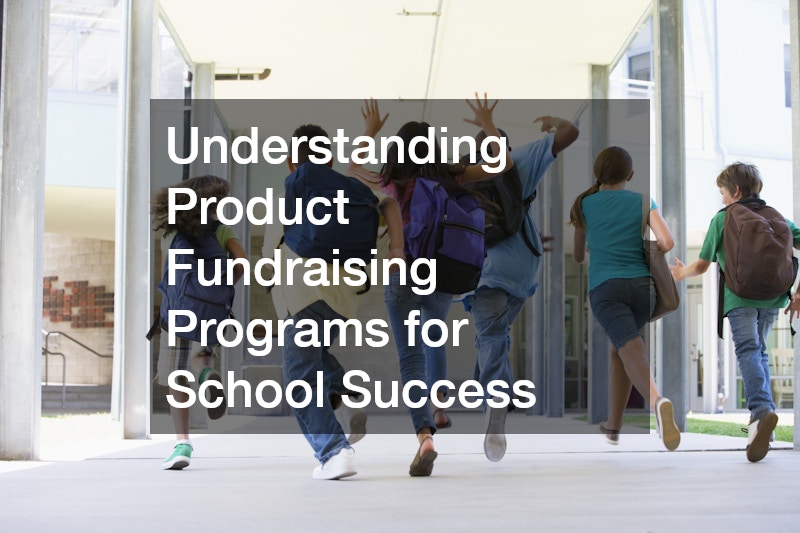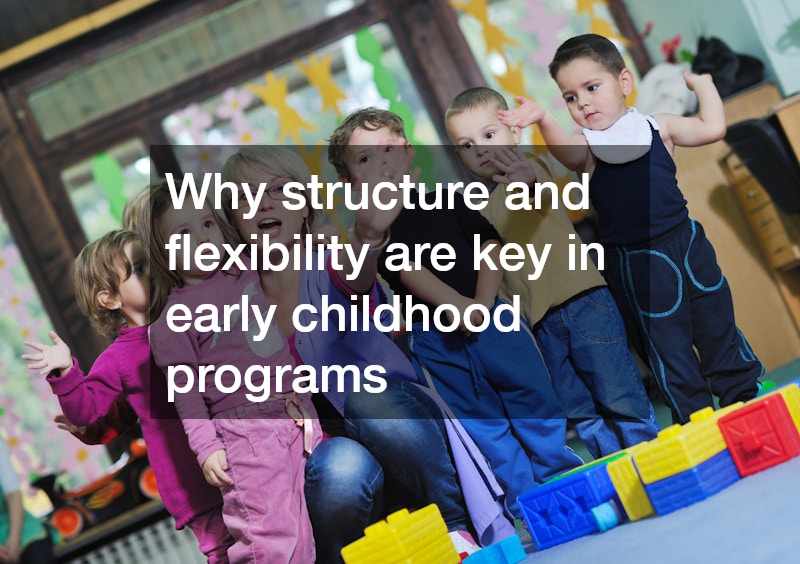Education plays a pivotal role in shaping the success and resilience of communities. Across the country, local private schools are raising the bar by introducing innovative programs, improving infrastructure, and fostering environments where students and teachers thrive. One of the most transformative investments these schools are making is the enhancement of teacher rooms, which support collaboration, professional growth, and well-being.
Modern private schools go beyond academics—they emphasize whole-student development, community connection, and sustainable campus operations. Whether it’s using eco-conscious resources from a local recycling service, maintaining lush sports turf, or partnering with local businesses like local pest control companies for safe facilities, private institutions are proving that education quality extends far beyond the classroom.
By exploring how local private schools improve both student outcomes and community engagement, we can better understand the important role these educational institutions play in fostering long-term growth.
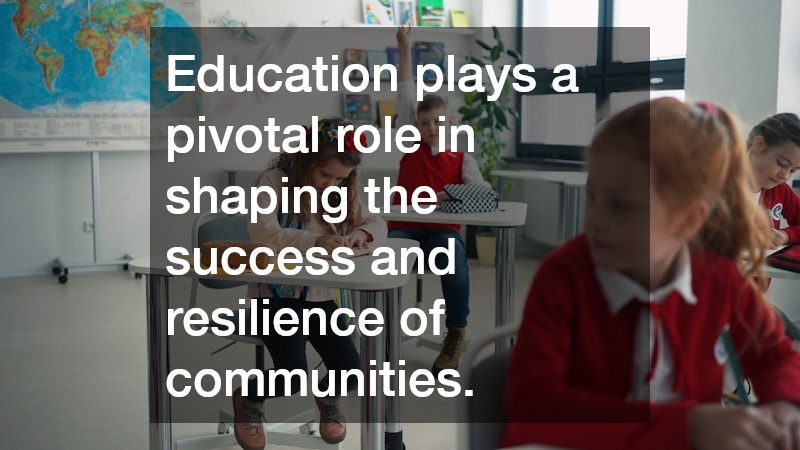
What Are the Key Benefits of Local Private Schools?
Investment in Teacher Rooms for Enhanced Collaboration
One of the defining advantages of local private schools is their dedication to creating professional, comfortable environments for educators. Modern teacher rooms are more than just break areas—they are collaborative spaces where teachers exchange ideas, plan lessons, and participate in training sessions.
Schools now design these spaces to include ergonomic furniture, ample natural light, and technology integration to facilitate lesson planning and communication. By creating functional environments that promote creativity and teamwork, private schools ensure that teachers are equipped to provide the highest quality education.
This investment also reflects a broader trend of prioritizing teacher satisfaction. When educators feel supported, their motivation translates into more engaging lessons and improved student outcomes.
Small Class Sizes and Personalized Attention
Small class sizes also promote stronger relationships between students and teachers, fostering trust and open communication. When educators have the opportunity to know each student personally, they can identify challenges early and provide specific guidance or enrichment activities. This individualized approach helps students build confidence and develop a genuine love for learning.
Additionally, smaller classes allow teachers to use more interactive and hands-on teaching strategies. Students can engage in group projects, personalized tutoring, and dynamic discussions that encourage creativity and teamwork. This approach also supports more frequent assessments, enabling educators to monitor progress and adjust lesson plans in real time.
Many local private schools complement their classroom structure with specialized facilities such as resource centers and modern teacher rooms, where staff collaborate on new instructional methods tailored to each class’s needs. This commitment to individualized education doesn’t just improve academic performance—it cultivates emotional intelligence, problem-solving skills, and lifelong curiosity.
Parents often cite the strong sense of community within these intimate learning environments as a major reason for choosing private education. Students not only benefit from focused instruction but also form lasting friendships and mentorships that help shape their personal and academic growth for years to come.
Access to Cutting-Edge Resources and Technologies
Private schools often have the flexibility and funding to incorporate advanced educational technology. From interactive smartboards to cloud-based assignment systems, students and teachers benefit from resources that enhance efficiency and engagement.
Some schools even integrate sustainable technologies like compressed air systems for energy-efficient maintenance or partner with recycling service providers to teach environmental stewardship. These real-world integrations show students how education connects with responsible community living.
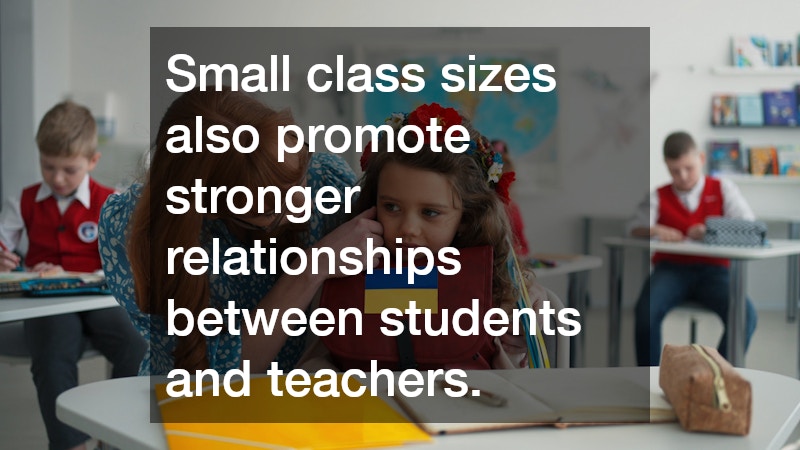
How Do Local Private Schools Attract and Retain Quality Teachers?
Improved Teacher Rooms for Staff Well-being
Retaining great educators requires more than competitive pay—it demands a supportive, well-equipped workspace. Upgraded teacher rooms offer teachers a place to recharge, collaborate, and focus on professional development. Comfortable seating, accessible technology, and designated quiet zones promote balance and focus throughout the school day.
Some schools even incorporate natural elements, like indoor plants or green wall installations, to enhance comfort and reduce stress. Just as well-maintained turf benefits student athletes, thoughtfully designed teacher environments promote mental clarity and creativity.
Competitive Salaries and Professional Development
Many local private schools recognize that investing in teachers directly influences student success. They offer competitive salaries, performance bonuses, and continual learning opportunities. Workshops, conferences, and online training programs allow teachers to stay updated with the latest teaching methodologies and educational tools.
Additionally, some private institutions collaborate with specialized training organizations and even sports-based programs such as soccer coaching, to diversify extracurricular and academic offerings. These partnerships not only benefit students but also expand teachers’ skill sets.
Supportive and Inclusive School Culture
A healthy workplace culture is one of the strongest retention tools. Private schools often cultivate close-knit communities where educators, parents, and administrators share mutual respect and shared goals.
Through transparent communication and supportive leadership, teachers feel empowered to contribute ideas and collaborate across departments. Regular staff gatherings, held in teacher rooms, help maintain morale and strengthen professional relationships—creating a culture where educators genuinely enjoy their work.
What Role Does Parental Involvement Play in Private Schools?
Enhanced Communication Channels Like Teacher Rooms
Strong parent-teacher relationships are essential to any school’s success. Many private institutions use teacher rooms as communication hubs, where meetings, conferences, and collaborative sessions take place. These interactions foster mutual understanding and enable parents to stay engaged in their child’s educational progress.
Schools often host parent information nights or workshops in these shared spaces, discussing academic expectations, safety measures from local pest control companies, or updates on campus maintenance involving local septic system service providers.
Opportunities for Parent-Teacher Collaboration
Parental involvement in private education goes beyond traditional conferences. Many parents volunteer in classrooms, mentor students, or assist in extracurricular programs. This hands-on approach strengthens trust and builds a sense of community between educators and families.
Schools often coordinate special events using local party supplies vendors for celebrations, fundraisers, and student showcases. These events reinforce a sense of pride and participation among families while supporting other local businesses.
Engagement Through Volunteerism and Events
Volunteer initiatives often extend into community service, encouraging students and families to participate in charitable projects such as recycling service drives or local clean-up campaigns. By promoting these values, local private schools teach students to be active, responsible members of society—something that public education systems often struggle to emphasize at the same scale.
How Are Local Private Schools Innovating Curriculum?
Integration of Modern Technology in Teacher Rooms
As technology evolves, so do teaching practices. Many local private schools are transforming teacher rooms into innovation centers equipped with digital planning tools, interactive whiteboards, and online resource hubs.
Teachers collaborate to develop project-based learning strategies, incorporating technology that engages students in problem-solving and research. This technological integration is often complemented by sustainable systems, like the use of compressed air energy solutions to reduce environmental impact on school facilities.
Interdisciplinary Approach and Project-Based Learning
Students today need more than memorization—they need critical thinking and collaboration skills. Many private institutions implement interdisciplinary curricula that combine science, math, and the arts to promote holistic learning.
Project-based learning encourages hands-on participation, whether it’s designing a sustainable irrigation system with the help of a local septic system service provider or maintaining the school’s athletic fields with quality turf. These real-world experiences make learning relevant and memorable.
Focus on Global Perspectives and Cultural Competency
Private schools understand that education should prepare students for a globalized world. They encourage cultural appreciation through language programs, international exchanges, and celebrations of diversity.
Schools also promote extracurricular programs such as soccer coaching to develop teamwork and leadership, connecting students through sports and shared goals. Events are often organized with the help of local party supplies companies, showcasing how academic and social growth go hand in hand.
What Impact Do Local Private Schools Have on Community Development?
Teacher Rooms as Community Meeting Spaces
In many communities, teacher rooms double as event or training spaces for local organizations. Hosting workshops or planning sessions strengthens ties between schools and the neighborhoods they serve.
Private schools frequently collaborate with community partners—from local pest control companies ensuring safe environments to recycling service providers promoting sustainability initiatives. These partnerships not only benefit students but also reinforce the school’s role as a community cornerstone.
Partnerships with Local Organizations and Businesses
Collaborations between schools and local enterprises drive mutual growth. Schools may rely on portable toilet rentals for outdoor events, or seek guidance from insurance company representatives on policy coverage for student trips and campus safety.
These partnerships create valuable educational opportunities as students witness real-world applications of business, environmental care, and civic engagement. By supporting local septic system service providers or maintaining eco-friendly turf, schools actively contribute to the health and sustainability of their communities.
Contribution to Local Economy and Job Creation
The economic impact of local private schools extends well beyond tuition fees. They employ local educators, maintenance staff, and service providers. Whether hiring diesel mechanics for school transportation, insurance company advisors for risk management, or portable toilet rentals for community sports events, these schools strengthen local business networks.
Every partnership supports regional growth and keeps resources circulating within the local economy—making education a true community investment.
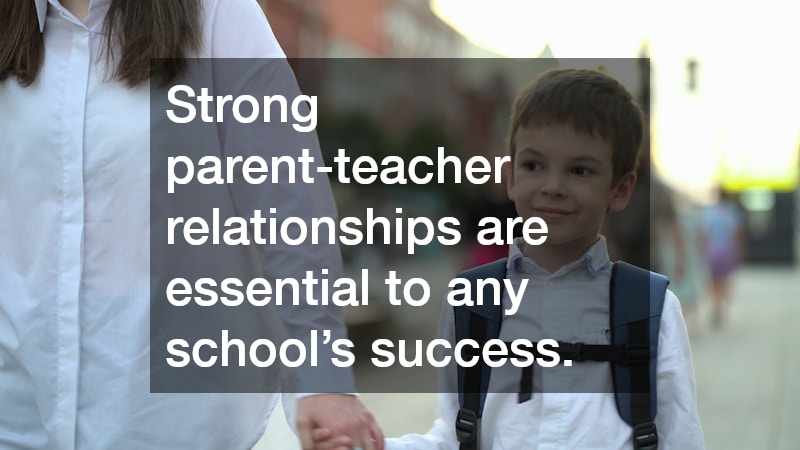
How Are Local Private Schools Committed to Diversity and Inclusion?
Inclusive Initiatives Facilitated in Teacher Rooms
Inclusivity begins with collaboration. Many diversity initiatives and training programs start in teacher rooms, where educators discuss equitable teaching practices and address cultural awareness.
Workshops focus on creating safe spaces for all students, regardless of background, and providing equal opportunities for academic advancement. Teachers are encouraged to integrate inclusive materials into their lesson plans and to model respect and empathy inside and outside the classroom.
Diverse Curriculum and Cultural Celebrations
Private schools embrace multicultural education by hosting cultural fairs and themed weeks. These events often utilize local party supplies for decorations, bringing vibrancy and joy to cultural celebrations.
Students learn about global traditions, art, and languages, helping them appreciate diversity early on. Schools also ensure facilities remain accessible to everyone, coordinating with local pest control companies and maintenance providers to maintain clean and safe environments.
Scholarship Programs and Financial Aid Options
Accessibility is a cornerstone of educational diversity. Many private institutions offer scholarships and need-based financial aid, allowing students from all backgrounds to attend.
Additionally, partnerships with an insurance company ensure that tuition protection and liability coverage are in place, providing peace of mind for families. Through these efforts, private schools embody inclusivity not just as a value, but as a tangible commitment to the future of education.
Local private schools are redefining what it means to deliver quality education. From small class sizes to upgraded teacher rooms, every aspect of their approach is designed to support both student and teacher success. These institutions strengthen communities through economic growth, environmental stewardship, and civic engagement.
By maintaining strong ties with community partners, local private schools go beyond traditional education to create environments that reflect real-world responsibility and collaboration. Working with local pest control companies ensures healthy, pest-free campuses, while partnering with recycling service providers promotes environmental stewardship among students. Similarly, local septic system service experts help maintain clean, efficient facilities that support the schools’ commitment to hygiene and sustainability.
On the academic front, these schools are investing in innovative technologies and infrastructure that redefine the learning experience. The integration of compressed air systems supports maintenance efficiency, while professional-grade turf enhances athletic programs, providing safe and durable playing surfaces. Combined with expert-led soccer coaching, these improvements encourage teamwork, discipline, and physical wellness, essential components of a balanced education.
Operational collaborations also contribute significantly to their success. Whether it’s coordinating portable toilet rentals for sports tournaments or partnering with an insurance company to secure staff and student safety, private schools continuously demonstrate foresight and responsibility. This attention to small and large details reflects a holistic approach that values comfort, security, and excellence equally.
Ultimately, these schools stand as pillars of educational innovation and community integration. They exemplify how quality education is not limited to academics but extends to creating nurturing spaces supported by thoughtful partnerships and modern resources. Through continued investment in teacher rooms, professional development, and inclusive programming, local private schools are shaping a future where learning thrives within a care, collaboration, and sustainability framework. Their vision ensures that students grow into not only knowledgeable individuals but also responsible citizens who contribute meaningfully to their communities.
